A Bluffer's Guide To Great Books: George Orwell's Nineteen Eighty-Four
Is it a bird? Is it a plane? No, it’s one of the 20th century’s super-novels — Nineteen Eighty-Four!
A warning, a prophecy, or just a story?
In retrospect, it can be seen as all three. Indeed, it would appear to have over-fulfilled its literary quota and moved from being a sci-fi inspired future-history novel, to become a piece of historical fiction. The old, worn out debate about its prophetic significance has gone by the board; look around you — do you get the feeling you are being watched?
But the significance of this novel is not merely that it pointed the way, however doomily, but that it did so so thoroughly, so tangibly, so well. The grit, the dust, the despair: one can taste all three in Orwell’s carefully constructed dystopia; the terrible gin, the awful food, the rickety cigarettes, and not just these — the chained-up words, the visible thoughts, the cowering fears and traitorous dreams.

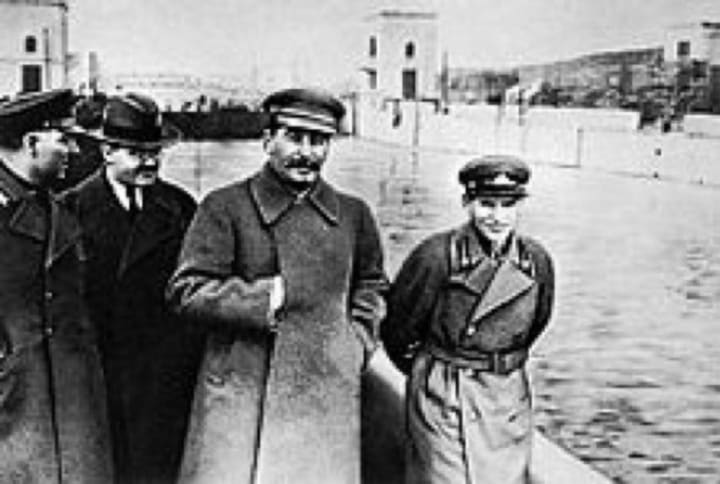
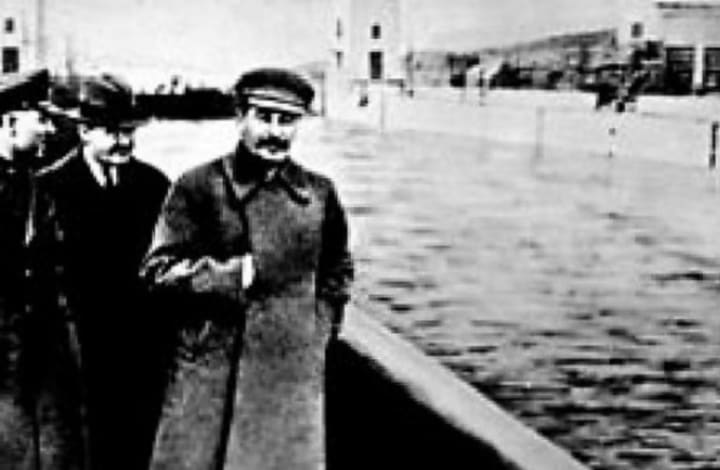


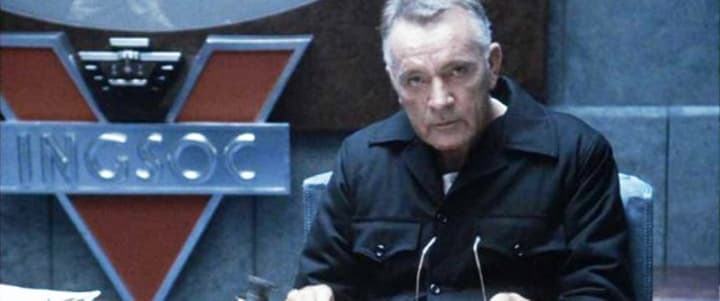
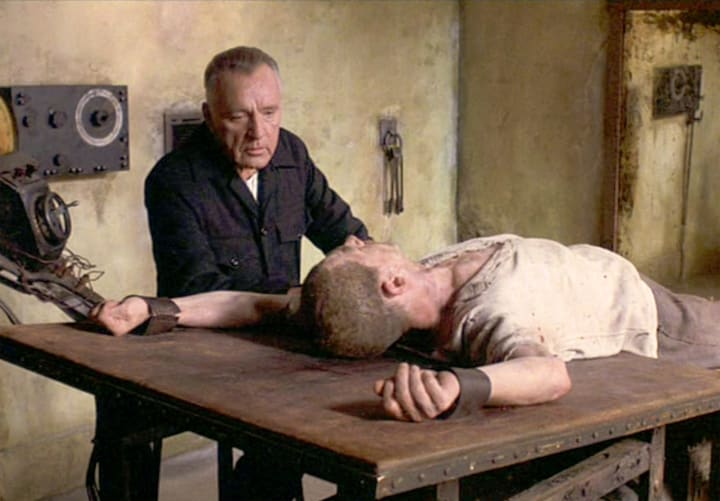
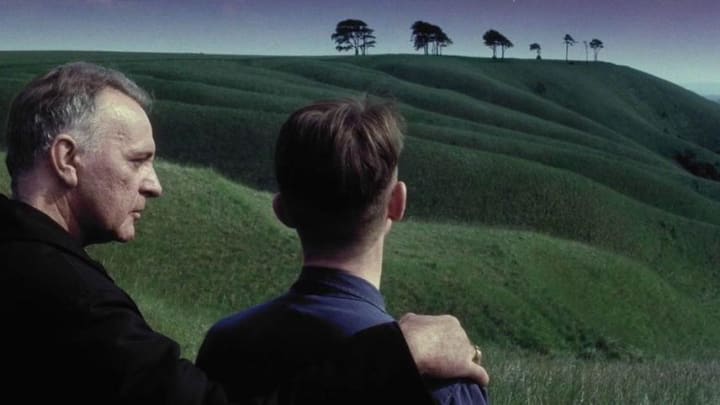
The Plot
Winston Smith commits thought-crime by "secretly" writing anti-Party slogans in a newly acquired notebook.
He attracts the attention of Julia (another undercover rebel) and O'Brien, an Inner-Party member.
Julia and Winston visit the countryside and make love. They later rent a room where they continue their illicit affair.
O'Brien invites Smith to his apartment, where he hands over the latest edition of the Newspeak dictionary, which contains within it the subversive Anti-Party book The Theory and Practice of Oligarchical Collectivism, written by the archenemy of the regime, Goldstein.
Winston and Julia are arrested in flagrante delicto by the Thought Police and taken off to the Ministry of Love where they are tortured (Smith by O'Brien, in reality a Thought Policeman) and only released when they have both been thoroughly brainwashed into accepting Big Brother.
Newspeak
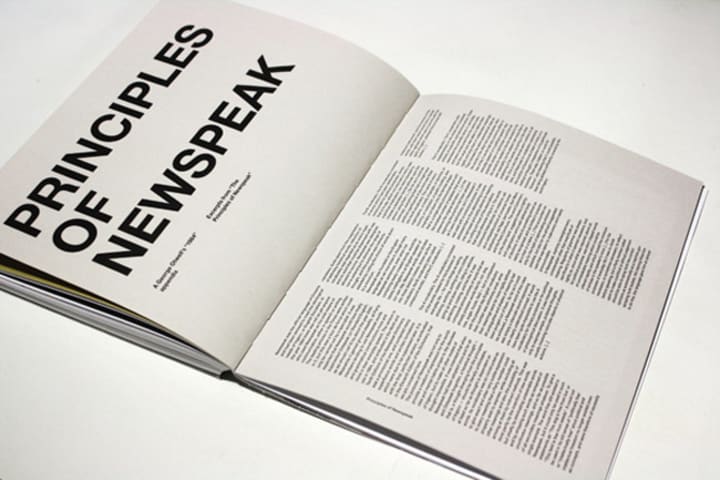
In Orwell’s terrible world, Newspeak words have become so well established that they are themselves almost as real as chocolate bars once were and, conversely, by the operation of these new words, certain other things lose their substantiality. Such as Love, Peace, and Freedom. Orwell was a big fan of Swift and in Gulliver's Travels, the academicians of the Grand Academy of Lagado have begun to replace words with the objects themselves. In Airstrip 1, words are beginning to replace other words, and with them their attendant ideas and emotions.
Words, Words, Words
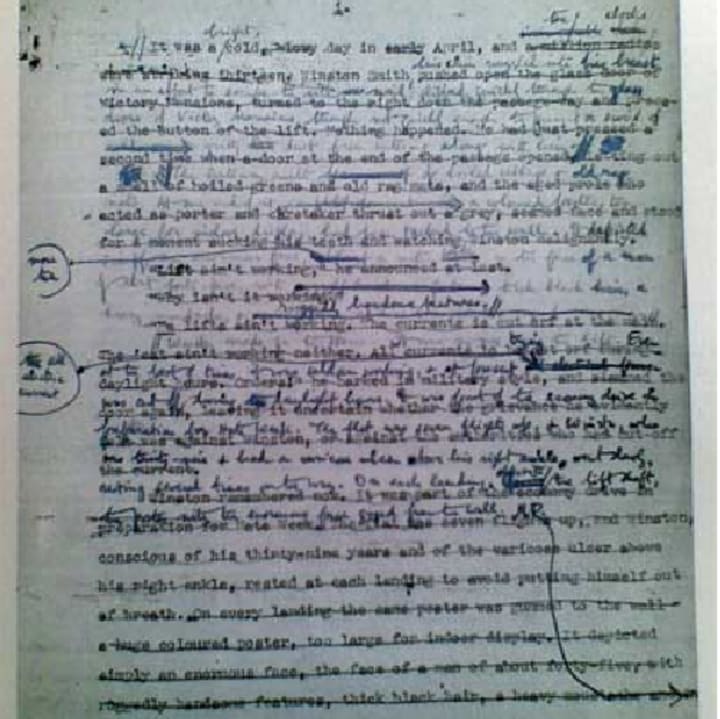
Nineteen Eighty-Four (amongst other things) is a primer on how to write – including how not to write if you aspire to be a complet human being. Unsurprisingly, Orwell attaches great importance to words, and much of the novel centres around what is and isn’t said, and especially what is sayable. All sorts of things get said, and then unsaid. Some things get said that should never have been said, and can never be unsaid. “Do it to Julia!” for instance.
At the heart of the novel is betrayal — the betrayal of one's real thoughts and feelings; the betrayal of others, even lovers; and perhaps above all, the betrayal of language, that slippery swarm of referents, made manifest in Smith's Room 101 horror of horrors — rats.
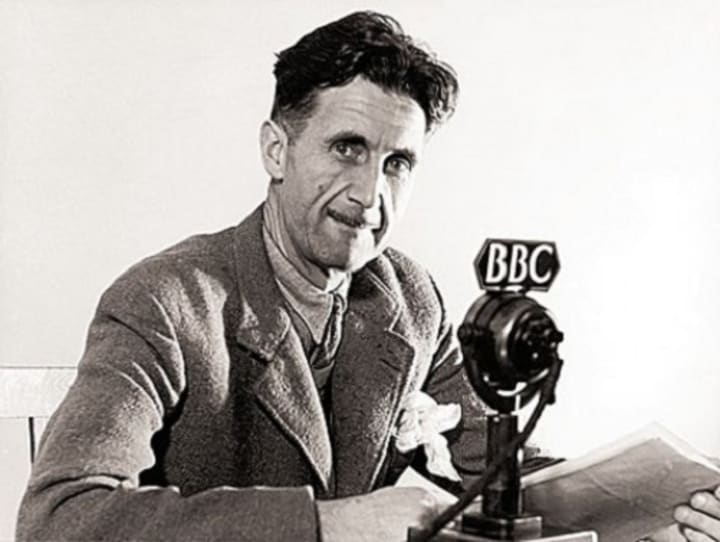
Orwell at the BBC
The Historical Background
Orwell was a socialist, not a communist — and certainly not a Stalinist. He had already fallen foul of the Communists during the Spanish Civil War whilst fighting for the Nationalist side. The communists were supposed to be on the same side as Orwell and his POUM (Partido Obrero de Unificación Marxista/Workers' Party of Marxist Unification)comrades, but they had a different agenda, and that did not include the support of a party with Trotskyite origins.
The Stalinist style of government was totalitarian and pursued much the same policy as IngSoc, the Party in Orwell's novel — everything was subsumed to the interests of the Party and had little to do with the liberation of the workers or anyone else for that matter. The point of the Party is the Party itself, and both IngSoc and Stalin's regime employed much the same terror and propaganda methods. In particular, Winston's rewriting of history was commonplace in the Soviet Union (see illustration), as well as spying on the populace by the security services. The only difference is that Orwell's Party is technically more sophisticated and much further advanced in the destruction of ordinary language and prevention of Thoughtcrime.
Orwell was long dead when CCTV and electronic spying became so prevalent, but he would have recognised the totalitarian implications of our modern system of public surveillance and may have had a lot to say about our modern version of the telescreen — the computer with a camera attached.
You have been warned!
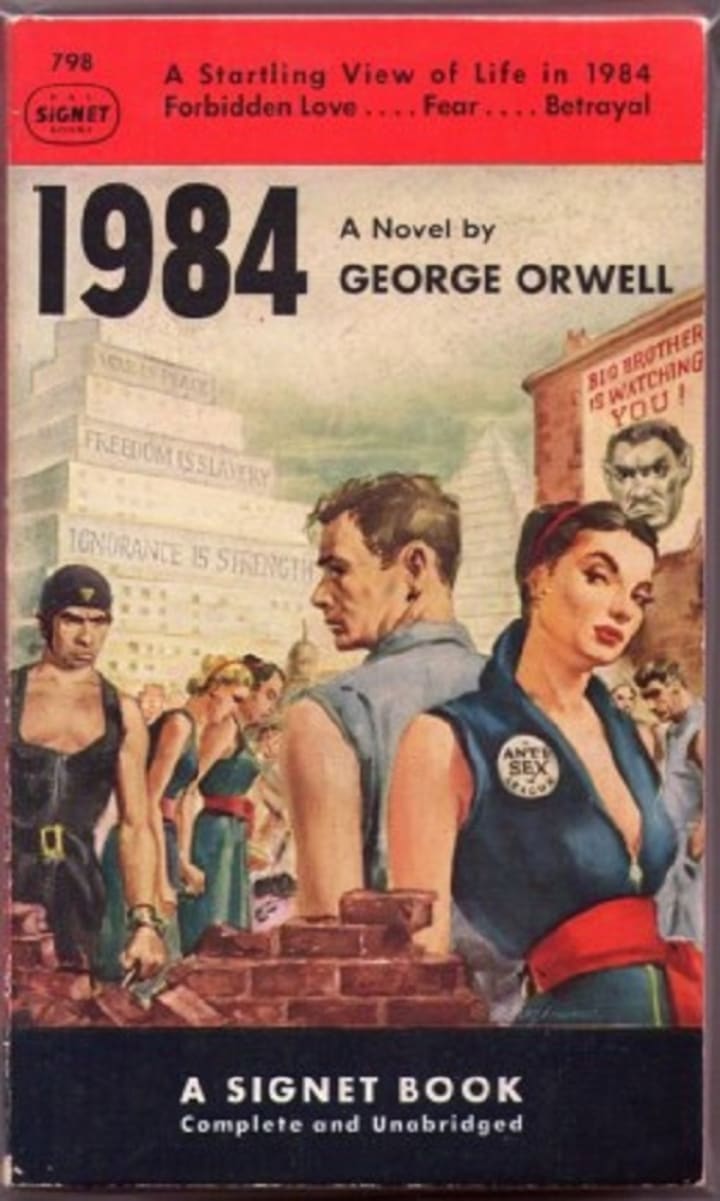

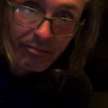




Comments
There are no comments for this story
Be the first to respond and start the conversation.